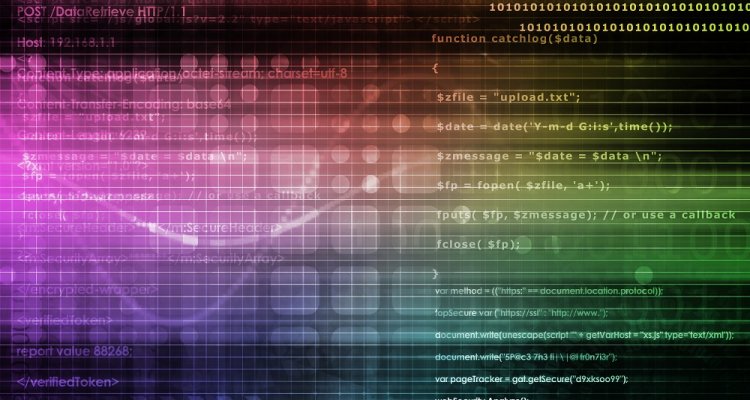
Data-driven and High-Tech (KB-38)
Self-learning devices capable of exposing possible food contamination and food fraud at an early stage. Smart software allowing consumers to make healthy food choices at a personalised level. Analysing robots that provide plants and animals with exactly the right treatment at the right moment in farming and horticulture.
Wageningen University & Research focusses on data-driven and high-tech innovations
Technology can contribute significantly to solving complex societal issues. Data-driven and high-tech innovations allow us to make food production, farming and horticulture more efficient, resilient and sustainable. These innovations will enable us to respond effectively to changes in climate, nature and society. In the coming years, Wageningen University & Research will focus on scientific research to generate the desired technological breakthroughs.
Research on data-driven and high-tech innovations is one of the priorities of the Dutch science agenda. Wageningen University & Research contributes significantly in this area through the research programme Data Driven & High Tech. We focus on the digital transformation of the agro-food system: from the plant, livestock and aquaculture, to environment, nutrition, climate and society. For a sustainable and resilient future of this system, we need systems that are capable of learning from the data they analyse. Simultaneously, we must ensure that we are always able to explain how intelligent systems (AI) reach solutions and answers, so that we, as humans, remain in control of the data and technology.
In Data Driven & High Tech we research four sub-topics:
Artificial intelligence (AI) based on data-driven analyses
The power of artificial intelligence is the fact that devices are capable of making decisions based on data-analyses, which enables them to generate more custom solutions and applications. In the coming years, we will harness this power to develop technologically advanced solutions. We are also working on dependable instruments to assess algorithms, data and applications scientifically. And we will establish open-source data sets allowing machines to discover patterns and adjust to altering circumstances.
Robotica and decision support
By discovering patterns in a large quantity of data, robots are able to take better, automated decisions. We strive to gain a better understanding of how traditional robots can evolve from programmable devices into self-learning systems with the ability to collaborate. With this knowledge, we intend to take the first steps towards adapting robots and drones to local circumstances. For example, we have developed a harvesting robot for bell pepper farmers, capable of recognising and harvesting ripe peppers through the use of a 3D environment and 100,000 virtual photographs. We formulate new views on the interaction between robots and humans and between robots and detect subsequent ethical dilemma's. We develop new ways of observing and controlling robots and make our knowledge available to companies, governments and researchers.
Infrastructures for knowledge sharing
It is expected that in 2030, the food industry will largely make decisions based on data from open and shared sources. For example from platforms (such as FAIR directives) linking and sharing data from research, machines, sensors and other sources of information. WUR is working on several such platforms for farmers, agriculture & land use and economic analyses. In this way, we support 200,000 farmers in Java by providing geodata based on satellite signals obtained from other sources. This geodata allows the farmers to assess deviations in the physical circumstances of their plots. Another example is the use of an open data system to comprehend the intricate logic behind the circular economy. We strive to find out how to obtain, link and share data safely. With this as a basis, we develop socially accepted data models that can be used for a wide variety of purposes, from agriculture and horticulture to aquaculture and food production. Furthermore, we map to what requirements research infrastructures must adhere to share privacy-sensitive information and how to organise data storage.
Society and economic aspects
Data-driven and high-tech research requires clarity on how information and applications are to be used. What ethical dilemmas are there? Who is responsible? And what about privacy? With these questions in mind, we will test new data-driven technologies. We map the legal requirements that apply to these new technologies and develop guidelines for the protection of privacy, data ownership and ethical dilemmas.
Promising opportunities, diligent solutions
Artificial intelligence (AI), robotics and data-driven analyses are developing at a high pace. The possibilities are promising, but ethics, legislation and governance require diligent solutions. With this research programme, Wageningen University & Research strives to contribute to the successful and responsible use of data-driven and high-tech innovations.
Ethical and Societal Impact of Digitalisation in the Agrifood domain
Digital technology isn’t neutral. It may contain hidden preferences; non-transparent and implicit assumptions and decisions are made during development of technical solutions. By making these assumptions and decisions explicit, it becomes clear which human values have been included and which have not. This can be a starting point for including certain stakeholder values in the development and application new technology. In this way, we can contribute positively to society and environment as a whole. The solutions offered become more sustainable, inclusive and fair; the desired impact becomes more relevant.
To start stimulating the awareness among WUR scientists and students on the ethical and societal impact of digitalisation in the agrifood domain, we have created video clips in which a number of lecturers present and discuss ethical issues. These lectures and podcasts cover the following domains:
- animal welfare
- data sharing
- personalised health and nutrition
- power balance
For each of these four topics we invited two lecturers from Wageningen UR to present their views. The first used the perspective of digital technology development and applications, and the second focused on the philosophical perspective. This approach ensured lively and interesting follow-up discussions. The lecturers have individually recorded their presentations. These video clips can be found here. The discussions have been recorded as podcasts, which can be found here: